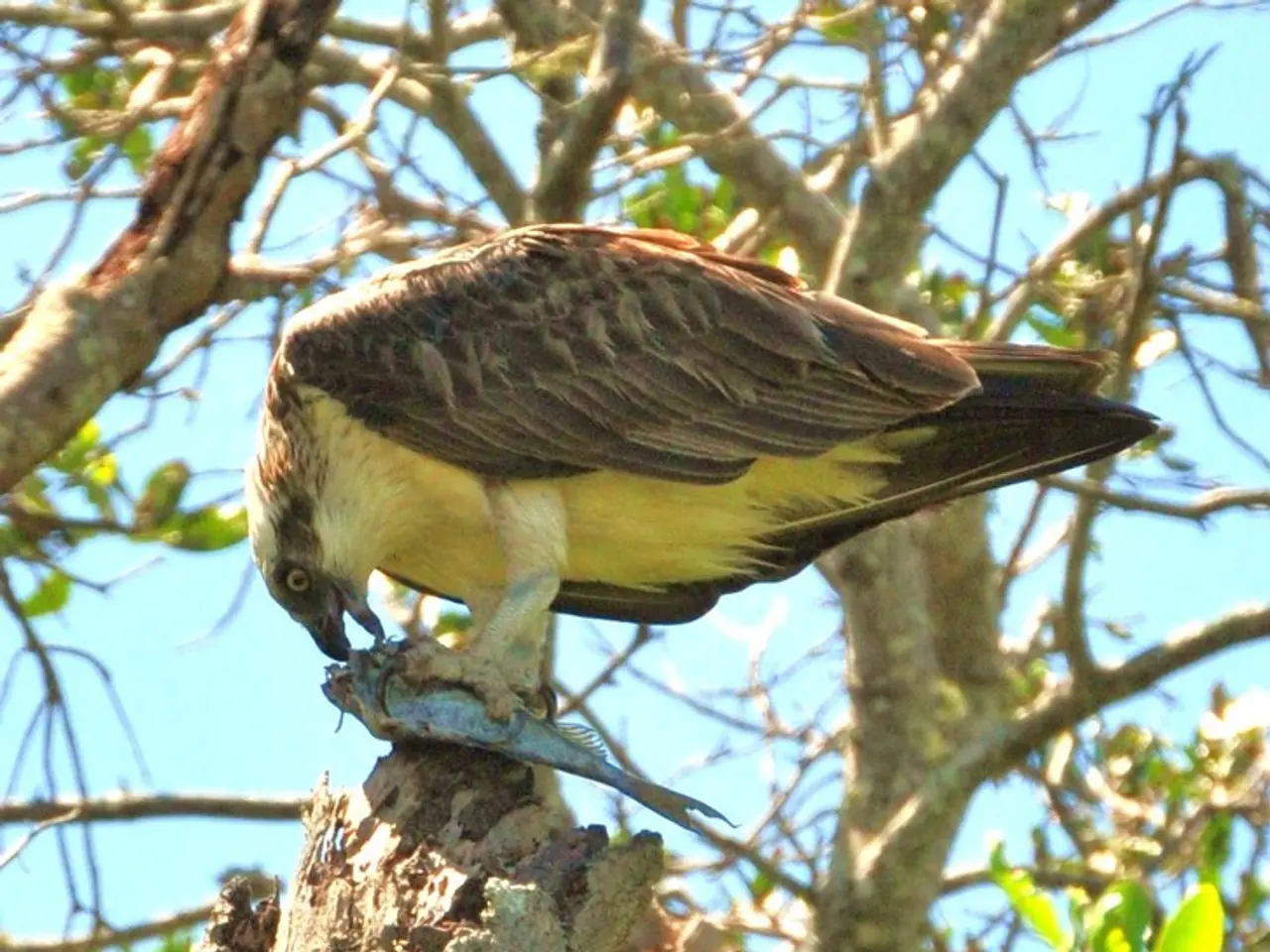A Third of Global Scavengers Are Vanishing, Potentially Leading to a Human Health Catastrophe
A new study published in the Proceedings of the National Academy of Sciences (PNAS) has issued a stark warning that one-third of scavenger species, including vultures, are facing a sharp decline in their populations. This decline could have serious consequences for human health, as the disappearance of these essential creatures might lead to an explosion of rats, feral dogs, and other disease-spreading animals.
Vultures, often referred to as nature's clean-up crew, play a crucial role in managing ecosystems and protecting public health. However, they are rarely the focus of conservation efforts due to misconceptions that they are dirty or dangerous. Current conservation efforts for vultures focus on protection, reintroduction, habitat restoration, monitoring, and community engagement.
In Europe, organisations like the Vulture Conservation Foundation (VCF) coordinate captive breeding programs for Bearded Vultures, collaborating with over 40 zoos and breeding centres. These efforts support restocking populations and reintroducing vultures to areas where they had disappeared. Research and monitoring, including the use of GPS trackers, help conservation scientists better understand vultures' behaviour and inform conservation strategies.
Habitat restoration and the revival of traditional livestock grazing methods also play a vital role in maintaining ecosystems that support vultures and their prey species. Community engagement and education initiatives aim to raise awareness about vultures' importance and foster local support for their conservation. Legal protection, such as the EU's Birds Directive, provides a framework against hunting and habitat destruction, with projects like the EU’s LIFE program offering financial and organisational support for vulture conservation.
Despite these efforts, illegal poisoning, habitat loss, and human-wildlife conflict remain significant challenges. Poisoned carcasses can kill multiple scavengers and severely impact populations, while habitat loss and degradation limit vulture survival and reproduction. Electrocution from power lines and food scarcity due to changes in livestock practices or habitat loss also threaten vulture populations.
The study's authors recommend stronger protections for scavenger habitats, tighter regulations on harmful drugs, and public education to reduce stigma against these animals. The importance of apex scavengers like vultures in maintaining the balance of ecosystems cannot be overstated. Their role in preventing the spread of diseases like brucellosis in developed countries and saving millions in disposal costs for farmers cannot be underestimated.
The study examined 1,376 species of vertebrates that consume dead animal flesh, highlighting the importance of apex scavengers like vultures in maintaining the balance of ecosystems. As the world grapples with the consequences of biodiversity loss, the urgent need to protect these crucial creatures becomes clear.
- The study published in PNAS emphasizes the need for increased protection of apex scavengers like vultures, due to the alarming decline in their populations.
- Biology and ecology reveal that vultures play a critical role in managing ecosystems and protecting human health by reducing the incidences of diseases.
- Despite their significant role, vultures are seldom the center of focus in conservation efforts, often due to misconceptions about their dirtiness and danger.
- Technology, such as GPS trackers, is being utilized in research and monitoring to better understand vultures' behavior and inform conservation strategies.
- In environmental science, organizations like the Vulture Conservation Foundation coordinate captive breeding programs and collaborate with various institutions to restock and reintroduce these crucial creatures.
- Community engagement and education are essential components of conservation efforts, aiming to raise awareness of the importance of vultures and generate local support for their conservation.
- The medical-conditions linked to diseases like brucellosis could be prevented, and farmers could save millions in disposal costs if apex scavengers, like vultures, are adequately protected and their populations are preserved.
- As the world confronts the aftermath of biodiversity loss, it is evident that the conservation of creatures like vultures, part of the wildlife community, is no longer a luxury, but a pressing need for the successful coexistence of science, health, and the environment.




